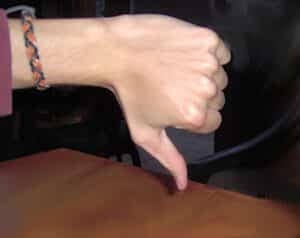More Deep Thoughts About Habits

The previous post reinforced the idea of improvement in small, steady increments (the “baby steps” method) and outlined the distinction between a habit and a routine. Establishing a routine takes conscious work, and the sooner we get over expecting it to be easy, the quicker we can transform the behavior into an unconscious habit. Some professionals have viable ideas about how to vanquish the mental roadblocks and stay on the road to building effortless habits.
Flexibility is needed, plus the willingness to reflect on goals, motives, values, priorities, limits, boundaries, and many other concepts. Like it or not, the mind is the source of pretty much all progress. Harvard Business Review writer Kristi DePaul’s thoughts continue here.
Pro tips
What, at this stage, should we ask the mind to do? For starters, we want it to take a good hard look at why we haven’t already taken a particular bit of behavior and turned it into a habit. This might require us to try something new, like learning better time management skills, or getting up earlier.
The nudge department
A nudge is some kind of event, incident, or symbolic object that reminds a person to do something. The author offers the example of someone who wants to advance in their career, and vows to read more industry-related news. DePaul writes,
What you can do: Create Google Alerts for topics directly related or even adjacent to your career interests, prompting you to click through and read at least one or two alerts every day.
She also endorses “temptation bundling,” as suggested by behavioral scientist and Professor Katy Milkman: “Take an activity you don’t like to do and something you do enjoy — now, bundle them together.” For instance, if you never have time to read, connect your device of choice to an audiobook and listen to it while running on a treadmill.
Like many other counselors, DePaul stresses the importance of having a “trusted manager, peer, friend, partner, or family member” as an accountability ally, to gently remind us when we stray off track. One popular comedian takes care of the accountability issue by viewing his own midsection in a mirror and cussing himself out.
The method is not recommended for everyone. According to DePaul and others in the helping professions,
[D]on’t forget to be compassionate with yourself as you embark on this journey toward more thoughtful routines, and hopefully, better habits. Any long-term change is going to take time. That’s just the reality. There will be ups and downs. But you are capable, and if you’ve made it this far, you are also prepared.
Your responses and feedback are welcome!
Source: “What Does It Really Take to Build a New Habit?,” HBR.org, 02/02/21
Image by Nenad Stojkovic/CC BY 2.0








